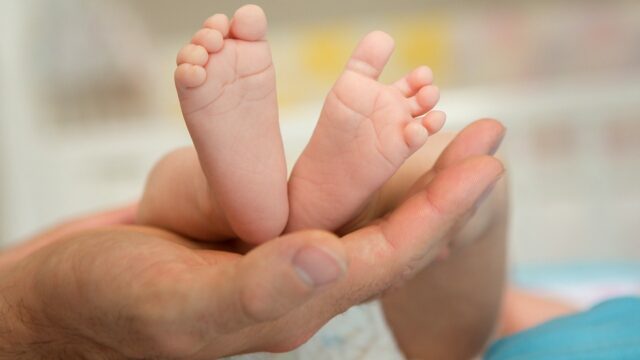
World Prematurity Day 17 November
Preterm births are the leading cause of death globally for children under the age of five. Every tenth child – about 15 million children – is born prematurely worldwide. World Prematurity Day on 17 November is created to raise awareness of preterm babies. BioStock draws attention to some of the Swedish life science industry’s contribution to preterm babies getting a better start in life. Thanks to medical technology and improved neonatal care, preterm babies today have very good chances of survival.
A child born before week 37 or earlier of pregnancy is considered premature and, for obvious reasons, preterm babies are small and fragile. They require great care in the form of warmth, closeness, respiratory assistance, and nutrition to grow strong and to get a good start to life.
World Prematurity Day 17 November
World Prematurity Day on 17 November is one of the most important days of the year to raise awareness globally of the challenges and the need for the support of preterm babies. The day was initiated in 2008 by The European Foundation for the Care of Newborn Infants (EFCNI) and collaborating European parent organisations.
Due to advancements in research, development in medical technology and neonatal care, the survival of premature babies has greatly improved and brain hypoxia of newborns has decreased. Sweden’s life science sector has had a major positive impact on this development.
Sweden – a world leader in neonatal care
Swedish neonatal intensive care has proven to be a world leader in caring for preterm babies, according to a study led by Karolinska Institutet. Learn more.
Swedish research and Swedish life science companies also contribute to increasing premature babies’ opportunities to survive and develop.
Recently, Ann Hellström, Professor and chief physician in ophthalmology at Sahlgrenska Academy and the University of Gothenburg was awarded for her research that, among other things, led to the discovery of premature babies having a low level of the growth hormone IGF-1 and that with the help of a combination supplement of fatty acids, the risk of visual impairment can be reduced.
Hellström’s research was awarded the Swedish Society of Medicine’s Gullstrand Medal in gold, which is awarded every ten years. Learn more.
Underdeveloped lungs
Extremely premature babies, born between weeks 22 and 27, get underdeveloped lungs that can develop into life-threatening conditions and risk disabilities later in life. Therefore, the most common cause of death among premature babies is so-called respiratory distress syndrome (RDS).
The two researchers and medical doctors Tore Curstedt and Bengt Robertson at Karolinska Institutet developed the treatment Curosurf 40 years ago, which is used to activate the lungs in premature babies. The treatment is estimated to have helped three million children. Curosurf was later sold to the Italian pharmaceutical company Chiesi. Learn more.
Medical technology from Lund helps children breathe
Lund-based Neola Medical, or GPX Medical as the company was called until the name change last summer, has developed a medical device for monitoring the lungs of premature babies.
With the company’s patented technology, hospital staff can monitor lung volume changes as well as the free oxygen concentration in the lung and receive real-time alerts to help them make decisions that can be life-saving for premature babies.
After good results in a clinical study in Ireland and a completed capital round during the autumn, the company will continue its market-preparatory activities in 2023. Learn more.
High nutritional requirements
When it comes to nutrition for newborns, there is a consensus that breast milk is the best source as it contains, additional nutrients, vitamins, minerals and antibodies.
Preterm babies also have a very high nutritional need and fortification of breast milk is often required to ensure an adequate nutritional intake that supports the baby’s development.
A challenge with enriching breast milk clinically is that there are large variations in the nutritional content of breast milk. The nutritional content of breast milk varies between different maternal and lactation stages and is also affected by storage and treatment.
Miris provides premature babies with proper nutrition
The Uppsala-based medtech Miris is the only company globally to offer an approved medical device – Miris HMA – for analysis of the nutritional content of breast milk. With Miris HMA, it is possible to analyse breast milk to individualise the enrichment to each child and thus increase the chances of premature babies receiving proper nutrition and better development.
During the year, Miris expanded its activities in both the US and Europe to further establish the method at leading neonatal clinics. Learn more.
To sum up, the Swedish life science sector with companies such as Miris and Neola Medical contributes greatly to raising awareness of preterm babies. Thanks to research, medical technology and improved neonatal care, preterm babies today have very good chances of surviving and getting a better start in life.


